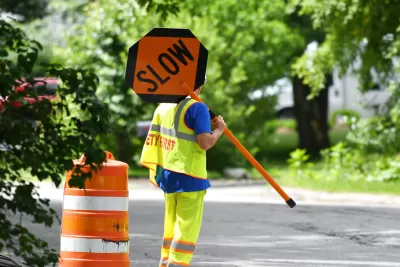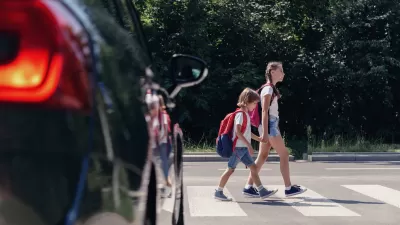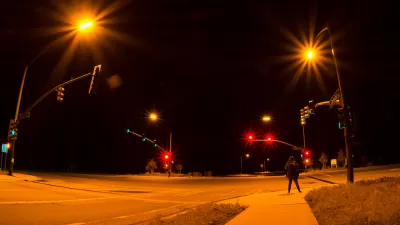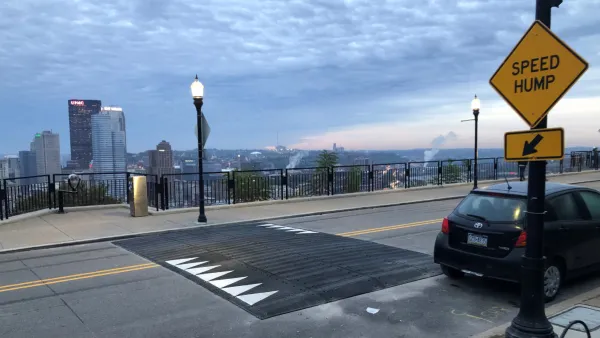The federal manual governing road design is getting an update. Will it encourage real progress toward road safety?

A post on the National Association of City Transportation Officials (NACTO) website outlines the key reforms the organization is looking for in the newly revised Manual on Uniform Traffic Control Devices (MUTCD), the federal document that dictates how roads are built in the United States.
For many safe streets advocates, the MUTCD is uniquely responsible for the unsafe design of many American roads, where over 40,000 people lose their lives each year. As NACTO points out, “The MUTCD governs all road markings, stop signs, and traffic lights in the U.S., and prioritizes moving vehicles quickly at the expense of safety, sustainability, and accessibility for people walking, biking, using a wheelchair, or riding transit.”
Some of the changes NACTO hopes for in the new MUTCD, which will be released after a review by the Office of Management and Budget (OMB), include:
- Elevating safety and implementing a ‘safe systems’ approach
- Eliminating the 85th percentile rule and other free-flow speeds in setting speed limits.
- Reforming regulations for signals to make street crossings safer for pedestrians.
- Removing the manual’s new proposed chapter on autonomous vehicles, which, according to NACTO, “absolves AV companies of the responsibility to build vehicles that keep road users safe within the existing transportation network.”
- Removing unnecessary restrictions on the use of paint for bus lanes, bike lanes, and crosswalks; and eliminating design restrictions for urban bikeways that conflict with data on bike safety.
FULL STORY: It’s Time to Reshape the Federal Document That Shapes Our Streets: The MUTCD

Maui's Vacation Rental Debate Turns Ugly
Verbal attacks, misinformation campaigns and fistfights plague a high-stakes debate to convert thousands of vacation rentals into long-term housing.

Planetizen Federal Action Tracker
A weekly monitor of how Trump’s orders and actions are impacting planners and planning in America.

In Urban Planning, AI Prompting Could be the New Design Thinking
Creativity has long been key to great urban design. What if we see AI as our new creative partner?

King County Supportive Housing Program Offers Hope for Unhoused Residents
The county is taking a ‘Housing First’ approach that prioritizes getting people into housing, then offering wraparound supportive services.

Researchers Use AI to Get Clearer Picture of US Housing
Analysts are using artificial intelligence to supercharge their research by allowing them to comb through data faster. Though these AI tools can be error prone, they save time and housing researchers are optimistic about the future.

Making Shared Micromobility More Inclusive
Cities and shared mobility system operators can do more to include people with disabilities in planning and operations, per a new report.
Urban Design for Planners 1: Software Tools
This six-course series explores essential urban design concepts using open source software and equips planners with the tools they need to participate fully in the urban design process.
Planning for Universal Design
Learn the tools for implementing Universal Design in planning regulations.
planning NEXT
Appalachian Highlands Housing Partners
Mpact (founded as Rail~Volution)
City of Camden Redevelopment Agency
City of Astoria
City of Portland
City of Laramie





























